Landscape paintings, with their surreal quality, weave stories that go beyond the visible. They can feature not only the raw beauty of nature but also the imprint of man – man-made structures, solitary figures or entwined lovers. The most revered landscape masterpieces seamlessly combine these diverse elements into harmonious compositions, proving that in a single painting, a whole world can open up, rich with stories waiting to be discovered, according to art and photography website Click121.
"The Great Wave off Kanagawa" by Katsushika Hokusai (1831)
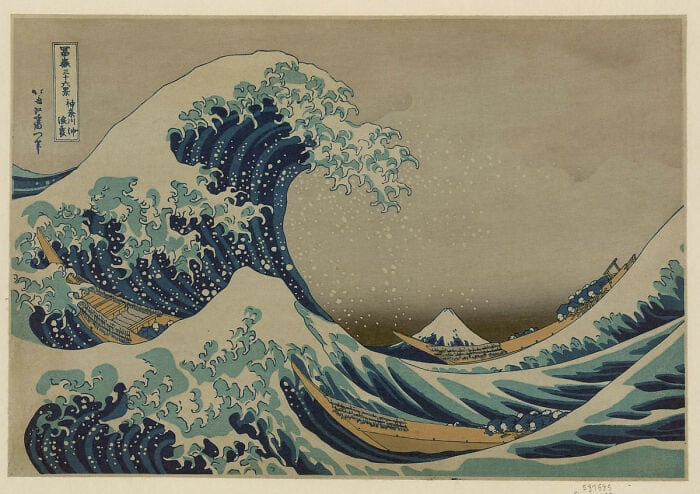
One of the most famous Japanese paintings, loved even in the West. The painting shows how huge waves are about to crash into some fishermen and their boat. In the background, Mount Fuji rises and looks like a northern star.
"View of Yosemite Valley, California" by Albert Bierstadt (1865)
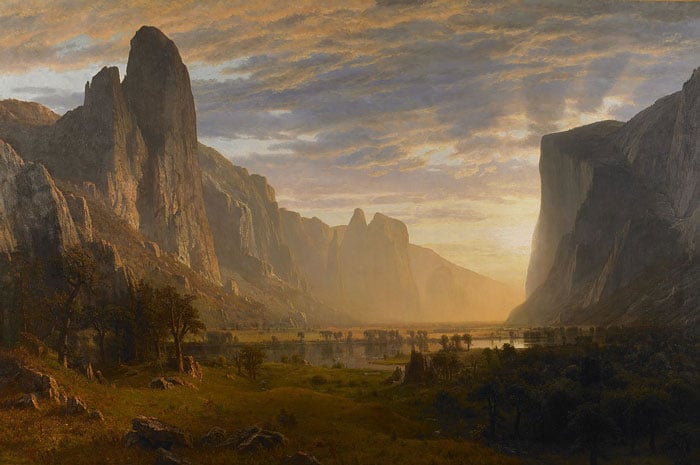
It was Bierstadt’s first major depiction of Yosemite, a subject for which he would become famous. It gives us a glimpse of one of America’s most beautiful destinations. Based on sketches he made in 1863, Bierstadt depicted the valley from a vantage point above the Merced River, looking west with Sentinel Rock and El Capitan framing the scene on the right and left, respectively. The spire of Middle Cathedral Rock can be seen in the distance.
"The Starry Night" by Vincent Willem van Gogh (1889)
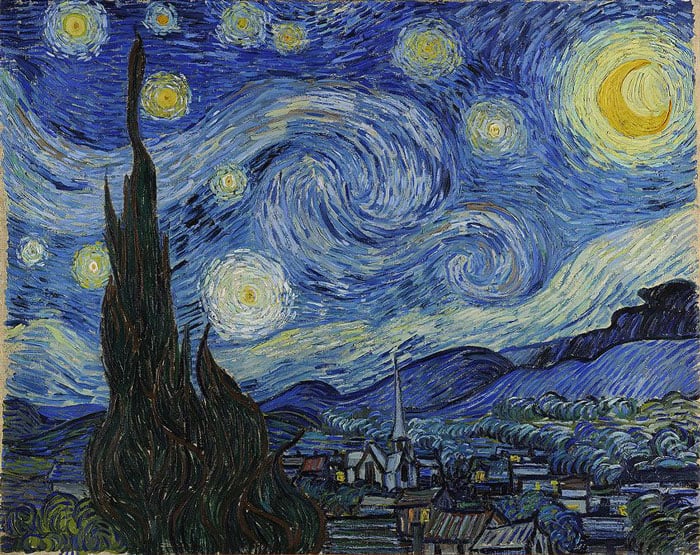
A starry night sky and moon dominate this medium-sized oil painting on canvas. It covers three-quarters of the picture plane and is characterized by strong swirling patterns that seem to sweep across the surface like waves, which also appear chaotic, almost agitated. The painting is surrounded by concentric circles of radiant white and yellow light and features several glowing orbs, including a crescent moon on the far right and Venus, the morning star, to the left of center.
"The Magpie" by Claude Monet (1869)
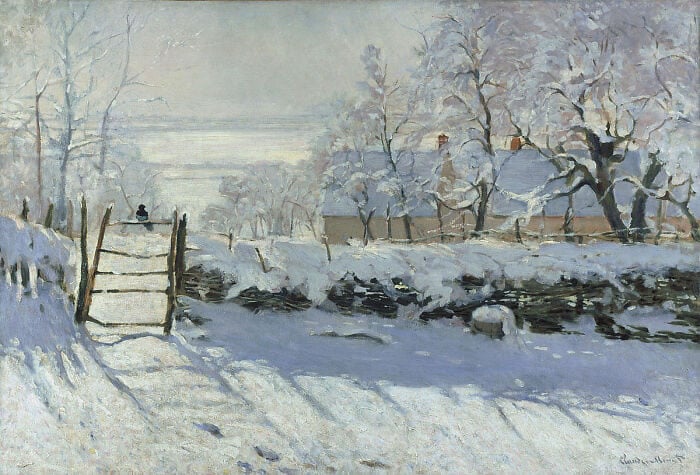
The painting "The Magpie" depicts a lone black magpie perched on a picket fence gate as the sunlight hits newly fallen snow, creating blue shadows. One of Monet's earliest uses of colored shadows, later associated with the Impressionist movement, can be seen in this painting.
"Among the Sierra Nevada Mountains" by Albert Bierstadt (1868)
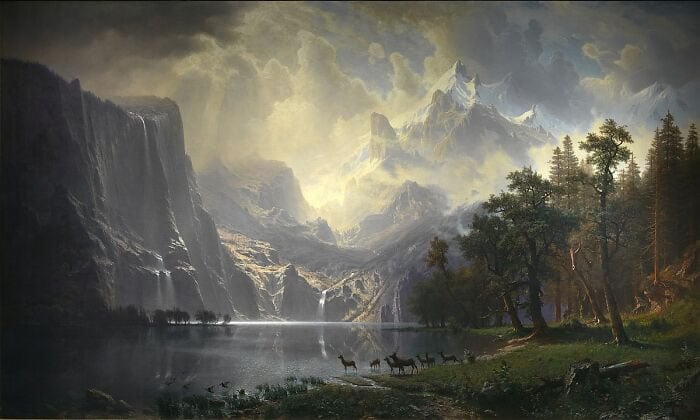
The painting features rugged mountains on the left and a bright sky with the sun shining through the clouds in the background. On the right of the painting is a peaceful lake with deer and waterfowl at the edge of the mountains. If you pay close attention, you can spot a trout in the water on the left, in the shadow of a rock.
"Starry Night Over the Rhone" by Vincent Willem Van Gogh (1888)
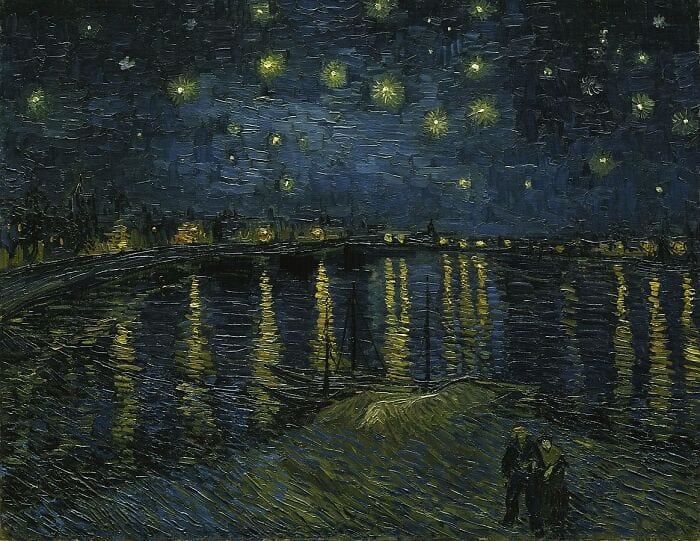
Van Gogh painted "Starry Night Over the Rhone", just a short distance from the Yellow House on Lamartine Square, where he lived. Some of his more famous works, especially "Starry Night", Van Gogh's most famous painting of night stars, were inspired by the night sky and the effects of light.
"Water Lilies" by Claude Monet (1906)
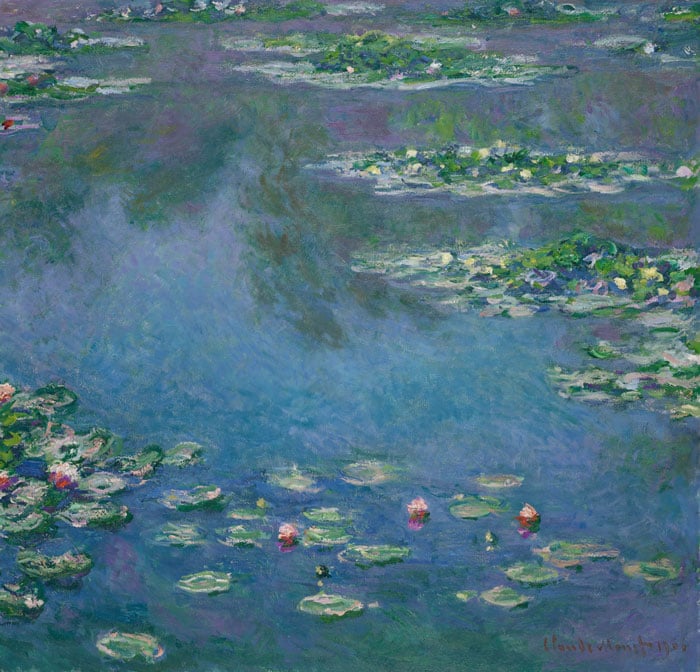
Claude Monet had completely abandoned the horizon by the time he painted "Water Lilies." The artist looks down, focusing only on the surface of the pond with its floating cluster of vegetation in the reflection of the sky and trees, in this spatially ambiguous work.
"The Queen of Sheba on Her Journey" by Claude Lorrain (1648)
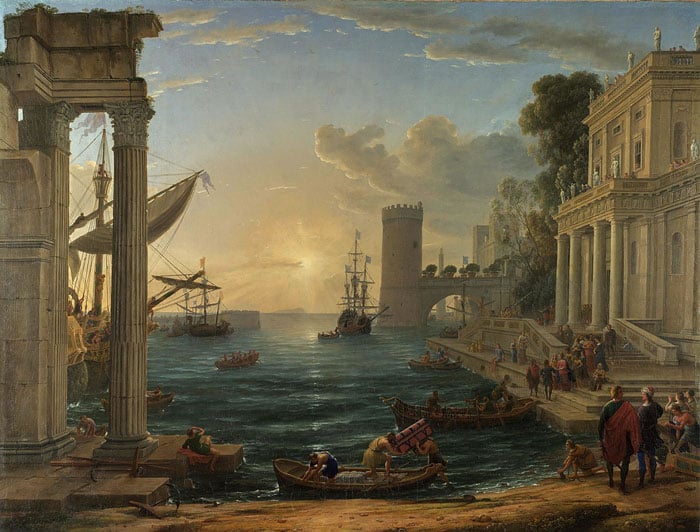
The painting's approximately two-meter width and one-and-a-half-meter height gave Claude Lorrain plenty of space to develop his chosen subject. He avoided painting too much detail on the canvas and let the sky take up half the space.
"View of Haarlem with the Bleached Fields" by Jacob Van Ruisdael (1670)
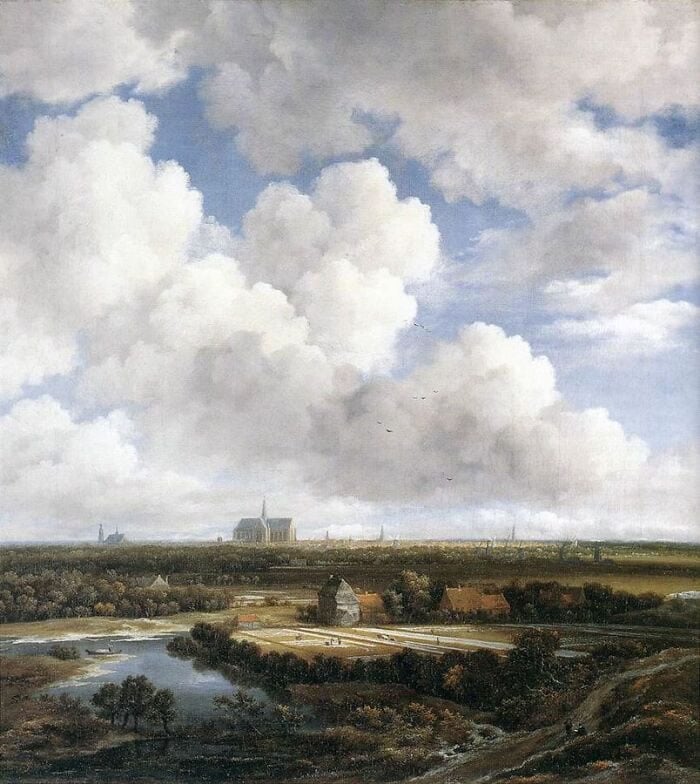
Van Ruisdael captures the essence of the Dutch landscape in this painting. We can see the flat plains towards the distant city of Haarlem from a high sand dune. The sky is vast above the city with clouds drifting by. In his painting, Van Ruisdael depicts the sun as it moves from one area of light to another. From the bleached linen fields to the distant St. Bavo Cathedral, he draws our eyes deeper into the painting along the patches of sunlight.
"The Hunters in the Snow" by Pieter Bruegel the Elder (1565)
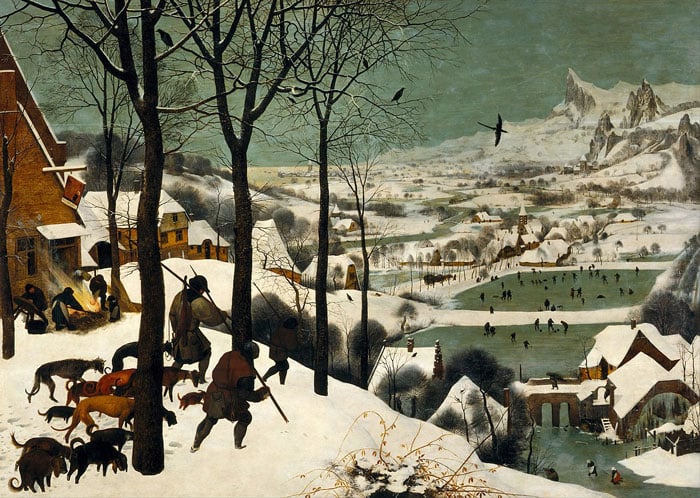
A calm, cold day with an overcast sky is what one sees when looking at the painting. The trees are bare, the colors are soft with whites and greys, and there is a faint smell of wood smoke. A fire outside is used by some adults, children and an inn to prepare food. Flat valleys with craggy mountain peaks visible on the opposite side form the landscape of the painting.
"Wanderer above the Sea of Fog" by Caspar David Friedrich (1817)
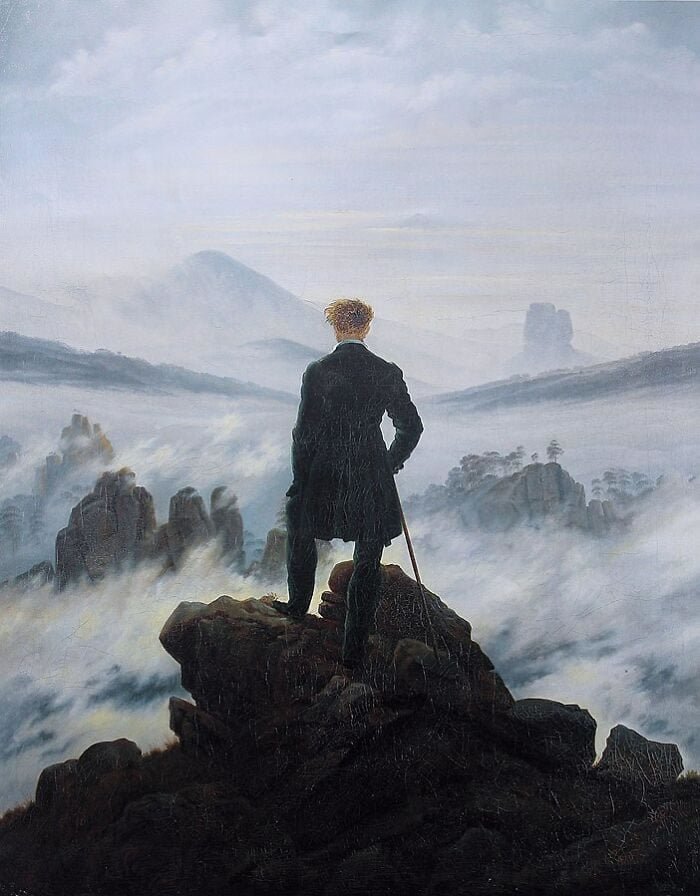
In the painting, a tall man stands on a rocky outcrop with his back to the viewer. He holds a walking stick in his right hand and wears a dark blue overcoat. The wanderer looks out at a landscape shrouded in a sea of thick fog, his hair blowing in the wind.
Guo Xi's Early Spring (1072)
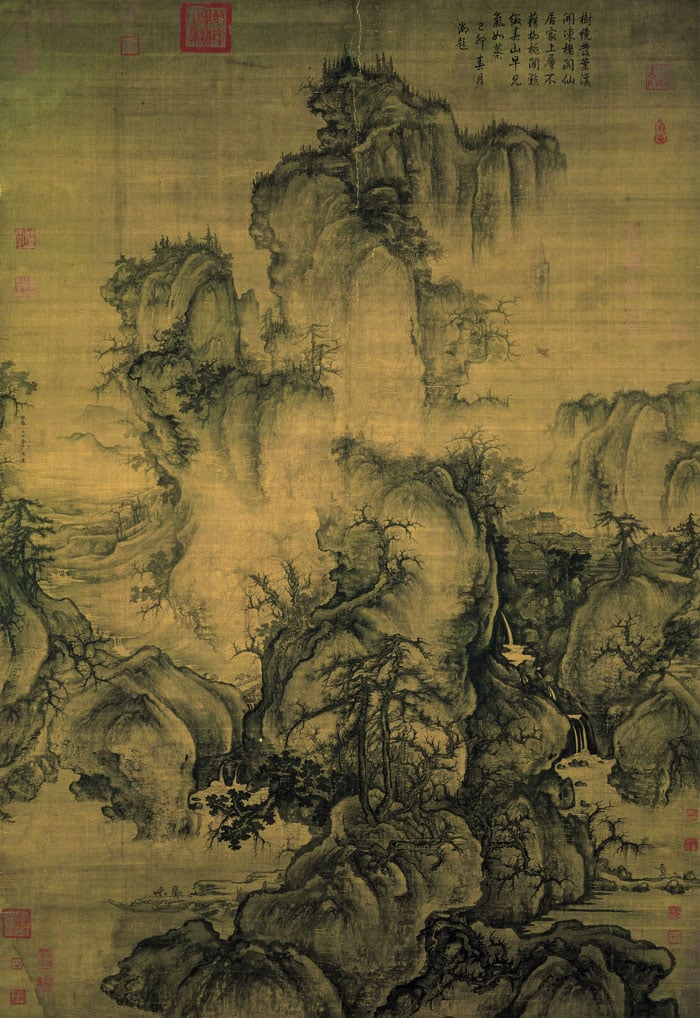
The painting shows the artist's innovative methods of creating different perspectives, which he calls "total perspective". "Floating perspective", a technique that moves the viewer's fixed eyes and emphasizes the difference between Chinese and Western spatial representations, is another name for this type of image representation. When it comes to painting, Guo Xi is often referred to as the "master of the Northern Song Dynasty".
Source link




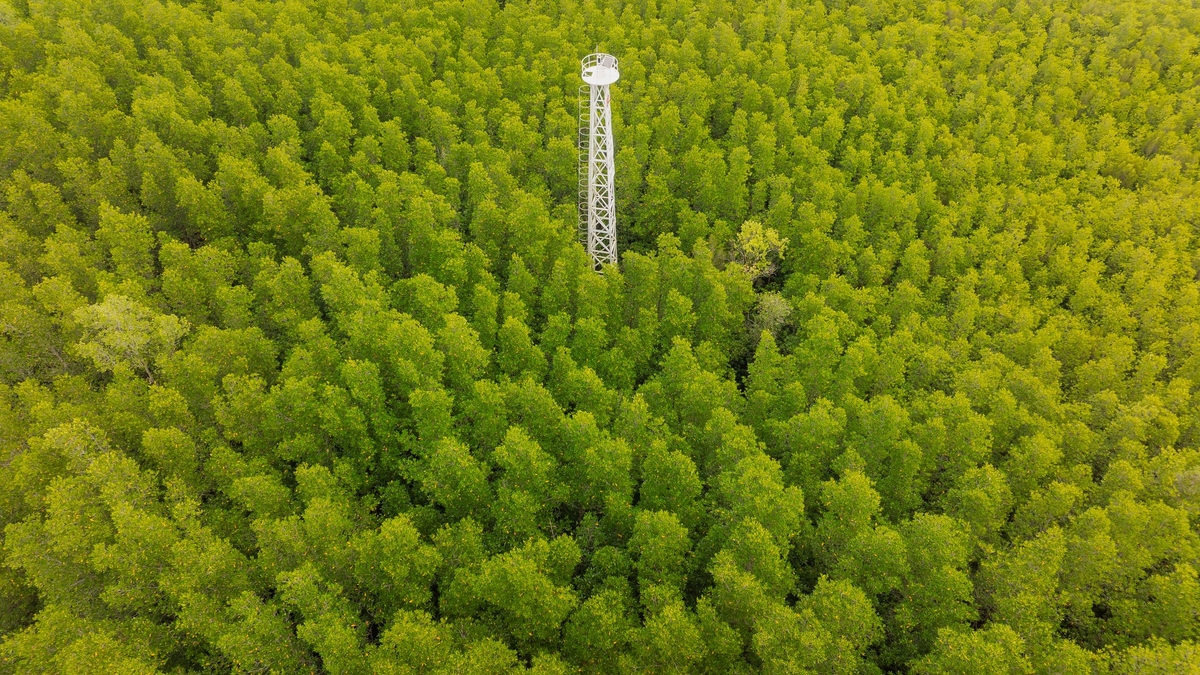

![[Photo] "Lovely" moments on the 30/4 holiday](https://vphoto.vietnam.vn/thumb/1200x675/vietnam/resource/IMAGE/2025/5/1/26d5d698f36b498287397db9e2f9d16c)
![[Photo] Binh Thuan organizes many special festivals on the occasion of April 30 and May 1](https://vphoto.vietnam.vn/thumb/1200x675/vietnam/resource/IMAGE/2025/5/1/5180af1d979642468ef6a3a9755d8d51)





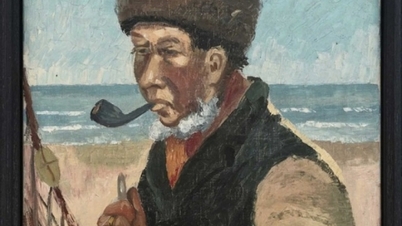

















![[Photo] Ha Giang: Many key projects under construction during the holiday season](https://vphoto.vietnam.vn/thumb/1200x675/vietnam/resource/IMAGE/2025/5/1/8b8d87a9bd9b4d279bf5c1f71c030dec)



































































Comment (0)